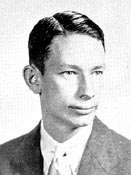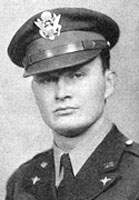Foreign Actors:
- Girja Shakar Bajpai- Indian Agent-General to Washington
- Winston Churchill- British Prime Minister
- Mohandas (Mahatma) Gandhi
- Lord Halifax (Edward Frederick Lindley Wood)- British ambassador to the United States
- K.A.D. Naoroji- Deputy Director of the Government of India Supply Mission- possible actor in Pearson leak
- Jawaharlal Nehru
- Madame Vijaya Lakshmi Pandit– Sister of Jawaharlal Nehru and future ambassador to the United States, president of the UN General Assembly
- Major Altaf Qadir- Third Secretary of the Indian Agent-General; possible actor in Pearson leak
- Obaidur Rahman- Press Officer of the High Commission; possible actor in Pearson leak
Journalists:
- Louis Fischer– Gandhi biographer
- Chamal Lal- Hindustan Times correspondent; possible actor in Pearson leak
- Drew Pearson– Washington Post political columnist
- Richard Walsh- Editor of Asia, head of John Day Publishing Co.
Lobbyists:
- Pearl Buck- Author and honorary president of the League in 1944
- K.C. Mahendra- Indian businessman, owner of a Bombay import-export company; owner of Castle Rock, a mansion on the Potomac in Falls Church, VA, and a regular Lobby event location; possible actor in the Pearson leak
- Dr. Anup Singh- First editor of India Today, founding member of the National Commission for India’s Independence; claims involvement in Pearson leak
- J.J. Singh– President of the India League of America
- Walter White– Executive secretary of the NAACP
Politicians:
- Emanuel Celler– Representative for New York
- Happy Chandler- Democrat Senator from Kentucky
- Clare Boothe Luce– Republican Representative for Connecticut
State:
- Adolph A. Berle- Assistant Secretary of State of Latin American affairs
- Robert Crane- junior officer at the India Desk in the Division of Cultural Relations
- Cordell Hull- Secretary of State
- Colonel Louis Johnson- Personal representative to India for Roosevelt
- Wallace Murray- Chief of the Division of Near East Affairs
- William Phillips– Personal representative to India for Roosevelt
- Franklin D. Roosevelt
- Sumner Welles- Assistant Secretary of State
Supporting Characters:
- Clark Getts– Lecture production bureau owner
- Horace Poleman– Head of India Southeast Asia Section of the Library of Congress
- Wendell Willkie– 1940 Republican presidential candidate











